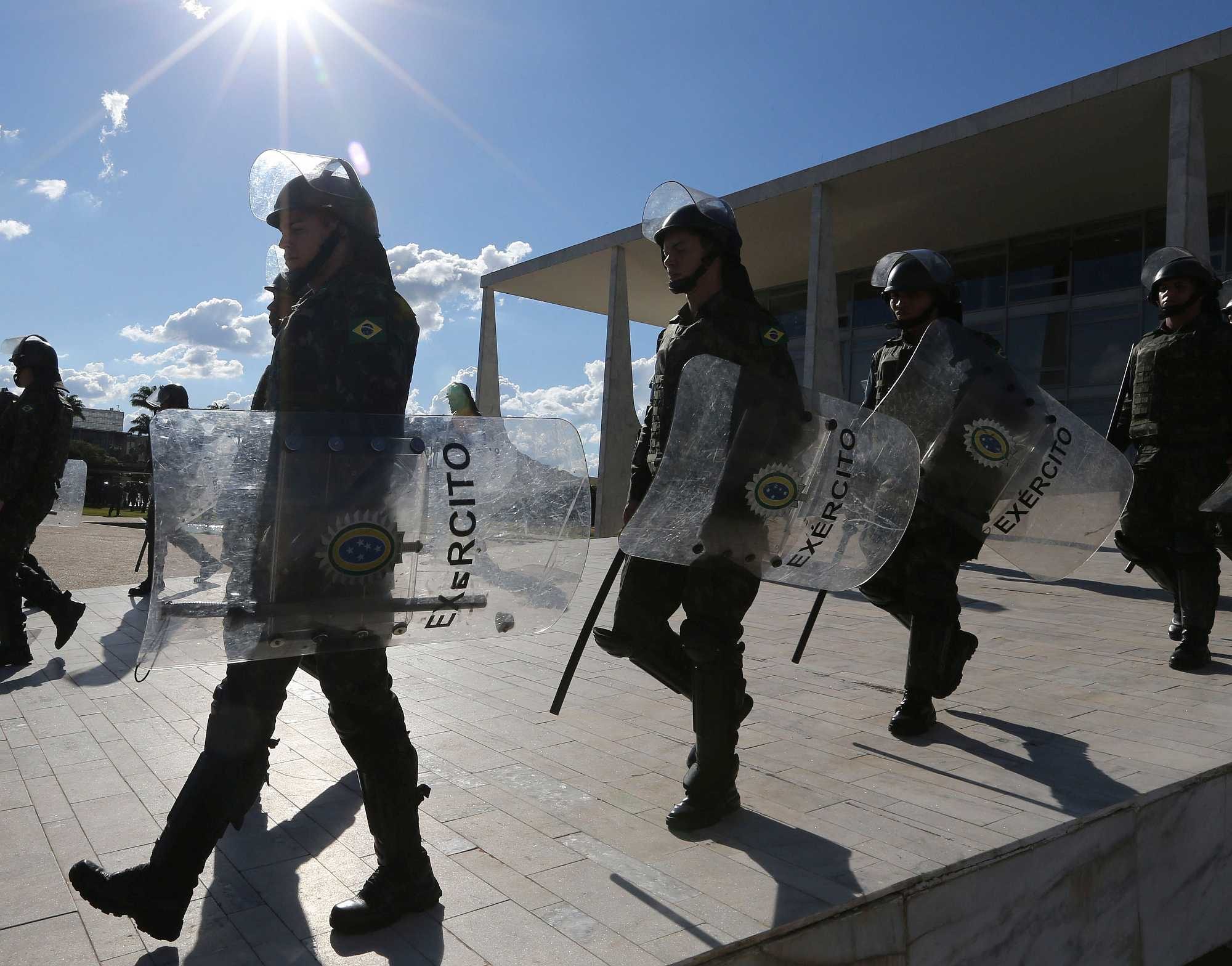The Brazilian Army took over positions close to the presidential palace and ministry buildings after a group of some 50 people wearing masks started a fracas during the demonstration against President Michel Temer in Brasília. This, after Military Police agents dispersed some of the protesters with tear gas bombs and stun grenades.
The masked protesters destroyed blinds and glass windows of at least six ministry buildings, among them that of National Integration, Labor, and also Agriculture, which, despite being surrounded by a security fence, had much of its glass shattered.
Also wrecked were bus stops, traffic signs, public phones, the floodlights that light the lettering identifying the ministries, and even the chemical toilets that had been installed ahead of the march.
The demonstration, dubbed Ocupa Brasília (Occupy Brasília) was called by union centers opposing the pension and labor reforms. They also call for the ouster of President Temer. Due to the protests, all of the esplanade, where the ministries are located, was closed for cars.
The riot police cracked down on tens of thousands of protesters who took to the streets against Temer and calling for fresh direct elections after the latest corruption scandal to rock the government.
“Out with Temer! General election now!” chanted the massive crowds, estimated by organizers to number as many as 150,000, a large turnout in the federal district with a population of 3 million. Armed riot police forces met the demonstrators with tear gas.
“Today is a defining day for the working class. Our rights are threatened by the coup and there is no respect for our dignity. We are being assaulted,” Roberto Sousa e Silva, a public school teacher, told reporters.
Under the banner of Occupy Brasilia, the demonstrations demanded the president resign and prompt new general elections, earlier than the scheduled presidential race in 2018.
Conservative forces are gunning for indirect elections through Congress to replace the president in the event he steps down or is removed from office through an impeachment process or pending trial on illegal election financing.
The Temer government has also sparked outcry for months with a series of neoliberal austerity policies rolling back social and economic rights, including with a reform that freezing public spending for the next two decades.
The regressive changes are expected to hit poor, marginalized Brazilians hardest with cuts to education, health and other social programs.
“Indirect elections do not solve the problem of the crisis, the population, the reforms that the government is trying to carry out,” argued Porto Alegre youth activist Caio Picareli.
“This Congress that would hold the election is the most reactionary in the history of Brazil, because it is tied to the interests of the large economic groups.”
T-shirts, banners and other signs at the march prominently featured the call for “Direct elections, now!”
The latest protests against the Temer administration, installed last year with the removal of former President Dilma Rousseff in an impeachment process widely condemned as a parliamentary coup, come on the heels of still another scandal to hit the government after a wiretap recording revealed Temer had endorsed bribes to keep quiet a powerful witness in corruption investigations.
Temer faces investigations for corruption and obstruction of justice after the damning wiretap.
The president has vowed that he will not step down over the scandal, saying in an interview with Brazil’s Folha de São Paulo newspaper, “I won’t resign, oust me if you want.”
ABr/TS

